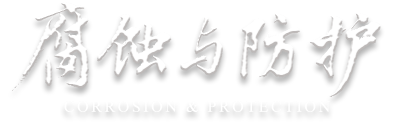Abstract:
The corrosion conditions in the deep waters of the South China Sea were simulated to investigate the influence of weighting materials on the corrosion resistance of cement stone in a CO
2-H
2S coupled corrosion environment. The results show that barite powder could not effectively fill the pores of cement stone, which facilitated the rapid penetration and diffusion of corrosive media into the cement matrix. Magnetite powder tended to react with H
2S, forming FeS
2, which damaged the pore structure of the cement matrix and significantly deteriorated the mechanical properties of the cement stone. In contrast, spherical manganese ore powder improved the rheological properties of cement slurry through a “ball-rolling” effect, optimized the pore structure of cement stone, and did not participate in corrosion reactions. As a result, it effectively hindered the penetration and diffusion of corrosive media in the cement matrix.

 下载:
下载: